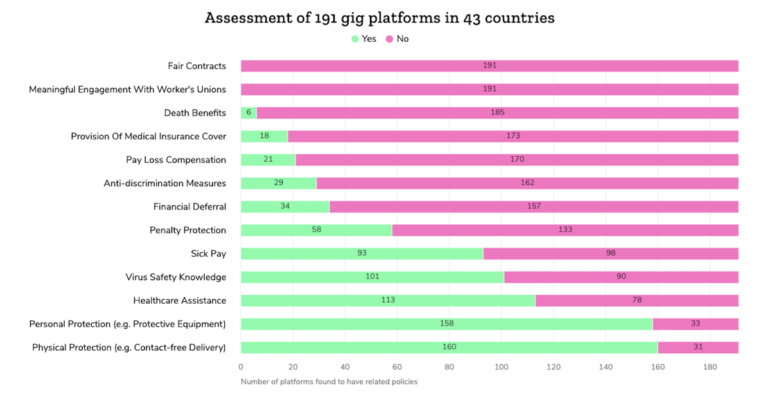Racial bias, the spread of misinformation, and anti-worker policies are all eroding the ‘health’ of the Internet with its ecosystem becoming more and more fragmented, researchers say.
Mozilla’s 2020 Internet Health report, published on Thursday, examines key concerns that could threaten the openness, security, and accessibility of the Internet.
Now in its fourth year, the research aims to “engage policymakers, businesses, and the public in protecting the Internet as a global resource.”
According to the non-profit, over the course of 2020, the web was besieged with problems related to a “built-in” racial basis that is exacerbating discrimination, and diversification is still an area that needs improvement.
From artificial intelligence (AI) algorithms that display bias against black and ethnic minority groups to search engine results that display white and US-centric content “by default,” Mozilla says that the Internet landscape “reflects a particular corpus of web content and the context of software developers, managers, and executives of technology companies who are rarely diverse in terms of race, ethnicity or gender.”
In addition, tech giants failing to act transparently contributed to the spread of misinformation — a critical issue when you consider global events such as the spread of COVID-19 and the US election. Anti-vaccine messages, 5G-coronavirus theories, and QAnon conspiracies, to name but a few examples, have run rampant over the past year.
Apple, Microsoft, Amazon, Google parent company Alphabet, Facebook, Tencent, and Alibaba are cited as the seven major technology companies that predominately control the web, and therefore, have a responsibility to control the stem of misinformation that is reaching unstoppable levels.
From the beginning of the pandemic until June 2020, a total of 8,105 YouTube videos spreading COVID-19 disinformation accounted for over 20 million shares across social media platforms and 71 million reactions before they were removed.
“The recent shocking events in the US highlighted so clearly how social media platforms can be used as megaphones to incite violence and spread disinformation — something we have seen time and again around the world,” the report says. “Despite years of complaints, there remains a worrying lack of transparency about the platform algorithms, governance and community dynamics at the heart of these models, preventing greater understanding and accountability.”
Mozilla also highlighted the gig economy, and says that this work model — although useful for some who need flexible roles — is “trampling the rights of workers.”
Made possible through online portals and mobile apps, the pandemic has increased demand for services including food and drink deliveries — but this has come at a cost.
“Delivery drivers and other workers who use apps to find customers are often considered essential workers during the pandemic,” the report says. “Yet these platforms frequently offer unfair and dangerous working conditions.”
Mozilla also suggested that the Internet as we know it is “splintering.” In 2020, every day, somewhere in the world, an Internet shutdown occurred, with India and Chad leading in arbitrary blackouts.
“The so-called “splinternet” is becoming a reality, with access to large swathes of the internet being increasingly restricted at a country level due to social or political conflict,” the non-profit says. “Censorship, surveillance, and content manipulation are closing off opportunities for people to participate openly and securely online.”
While the Internet landscape last year exposed trends that could erode an open Internet, Mozilla says that improvements are not only possible, but also necessary. Encouraging more diverse pools of talent, rethinking the foundation of systems — from how gig workers are classified in law to how content moderation is performed — questioning technology companies that hold the power to sway online discourse, and developing community-focused alternatives to the online services we use in our daily lives are all ways toward a more open and fair Internet.
Previous and related coverage
Have a tip? Get in touch securely via WhatsApp | Signal at +447713 025 499, or over at Keybase: charlie0



